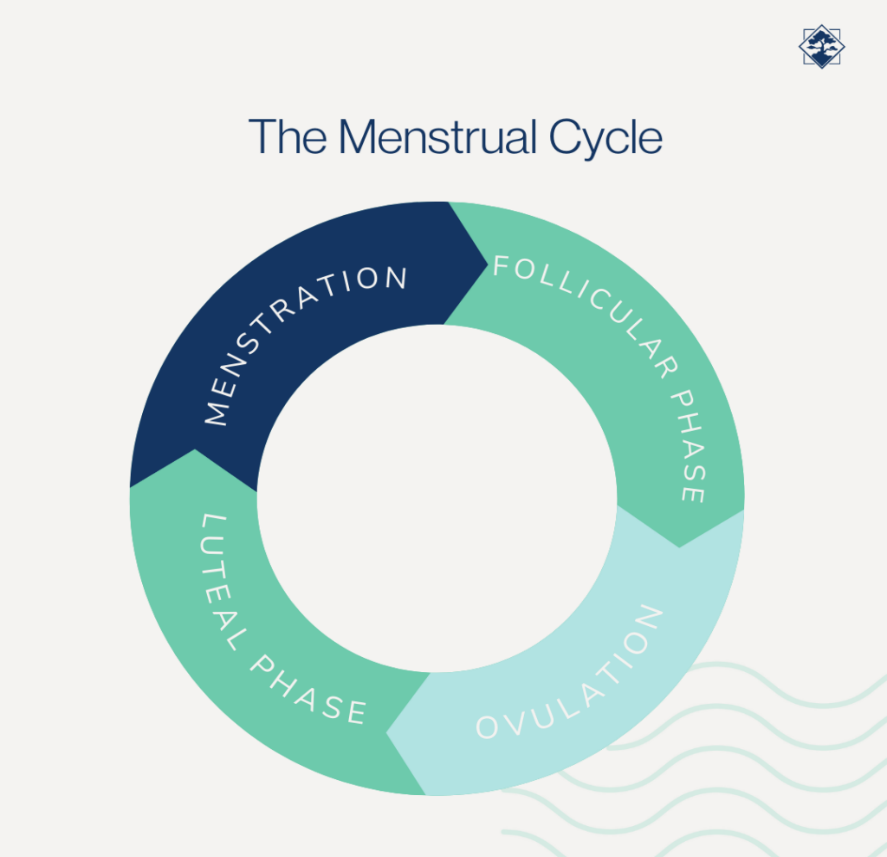Conception can be a complex process, and understanding your body’s natural reproductive cycle is crucial for maximizing your chances of getting pregnant. One of the most critical components of this process is ovulation. Knowing when you are ovulating can significantly increase your chances of conceiving, as this is when a woman is most fertile. In this article, we’ll explore what ovulation is, how to track it, and ways to enhance your ovulation to boost fertility.
What is Ovulation?
Ovulation is the process in which a mature egg is released from the ovary, ready to be fertilized by sperm. This typically occurs once in every menstrual cycle and is a key factor in determining a woman’s fertility window. The ovulation cycle is regulated by a complex interplay of hormones, primarily luteinizing hormone (LH) and follicle-stimulating hormone (FSH). LH surge, which occurs roughly midway through the cycle, triggers the release of the egg from the ovary. This is the period when the chance of conception is highest.
Understanding the Ovulation Cycle
A typical menstrual cycle lasts between 28 to 32 days, but it can vary significantly from person to person. Ovulation generally occurs around the 14th day of a 28-day cycle, but it can happen earlier or later depending on the individual’s cycle length. The fertile window—the period when pregnancy is most likely to occur—usually spans 5 days before ovulation and 1 to 2 days after. Sperm can survive in a woman’s body for up to five days, and the egg remains viable for about 12 to 24 hours post-ovulation.
Signs and Symptoms of Ovulation
Understanding the signs of ovulation can help in identifying the fertile window more accurately. Common signs include:
- Changes in Cervical Mucus: During ovulation, cervical mucus becomes clear, stretchy, and slippery, similar to egg whites. This type of mucus helps sperm swim up the cervix to meet the egg.
- Basal Body Temperature (BBT) Changes: A slight increase in basal body temperature is observed after ovulation due to the hormone progesterone. Charting BBT over time can help identify ovulation patterns.
- Mittelschmerz or Ovulation Pain: Some women experience a slight twinge or cramp on one side of the lower abdomen during ovulation.
- Increased Libido: A rise in libido around ovulation is common due to hormonal changes.
- Breast Tenderness: Hormonal changes around ovulation can cause breast tenderness or sensitivity.
Tracking Ovulation: Methods and Tools
Several methods can be used to track ovulation, helping to predict the fertile window:
- Ovulation Predictor Kits (OPKs): These test kits detect the surge in LH levels in urine, indicating that ovulation is likely to occur within the next 24-36 hours.
- Basal Body Temperature Charting: By taking your temperature every morning before getting out of bed and charting the results, you can notice a pattern of a slight increase in temperature after ovulation.
- Menstrual Cycle Apps: Many apps can help track menstrual cycles, symptoms, and basal body temperature to predict ovulation days.
- Cervical Mucus Monitoring: Observing changes in cervical mucus can provide a natural indication of fertility status.
- Ultrasound Monitoring: For women undergoing fertility treatments, doctors may use ultrasound to monitor follicle development and determine the timing of ovulation.
Lifestyle Factors that Affect Ovulation
Certain lifestyle factors can influence ovulation and overall fertility:
- Nutrition and Diet: A balanced diet rich in fruits, vegetables, lean proteins, and whole grains can support reproductive health. Foods high in antioxidants, omega-3 fatty acids, and folic acid are particularly beneficial.
- Maintaining a Healthy Weight: Both underweight and overweight conditions can disrupt hormonal balance, affecting ovulation. Maintaining a healthy BMI (Body Mass Index) is crucial for regular ovulation.
- Stress Management: High stress levels can interfere with the hormonal balance required for ovulation. Practices like yoga, meditation, and mindfulness can help reduce stress.
- Avoiding Harmful Substances: Smoking, excessive alcohol consumption, and high caffeine intake have been linked to reduced fertility. Limiting these can help maintain a healthy ovulation cycle.
Medical Conditions That Affect Ovulation
Several medical conditions can disrupt normal ovulation, including:
- Polycystic Ovary Syndrome (PCOS): A common hormonal disorder that can cause irregular ovulation or anovulation (absence of ovulation).
- Thyroid Disorders: Both hypothyroidism and hyperthyroidism can interfere with menstrual cycles and ovulation.
- Primary Ovarian Insufficiency (POI): A condition where the ovaries fail to function properly before the age of 40, affecting ovulation.
When to Seek Medical Advice
If you have been trying to conceive for over a year (or six months if over the age of 35) without success, it may be time to seek medical advice. A healthcare professional can conduct tests to check for ovulatory disorders and recommend appropriate treatments.
Understanding your ovulation cycle is a vital step toward boosting your chances of conceiving. By learning to recognize the signs of ovulation, tracking your cycle accurately, and making positive lifestyle changes, you can enhance your fertility. Remember, every woman’s body is unique, and understanding how your cycle works can empower you to take control of your reproductive health.









